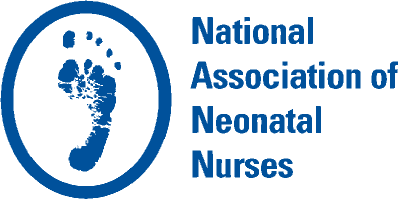Health Policy and Advocacy
Reimbursement for Donor Human Milk for Preterm Infants
Tara Boice, MSN RNC-NIC
The Issue
Research has shown that a breast–milk only diet is vastly superior to formula feeding. However, mothers of preterm infants face a number of barriers to providing sufficient milk volume to their babies, who are at risk for many health issues. Donor milk banks can offer breast milk that may be used as a replacement or supplement when maternal breast milk is unavailable or there is an insufficient supply. However, donor milk is costly, currently averaging $4.50 per ounce. Though more expensive than formula, donor milk is much less expensive than the cost of a prolonged hospital stay for necrotizing enterocolitis (NEC). Every dollar spent to purchase banked donor milk saves as much as $11 in medical costs. This makes the decision to use donor milk both excellent evidence-based medical care and cost-effective treatment.
The Research
Human milk consumption by neonates has been shown to decrease the rate of sepsis, feeding intolerance, NEC, and bronchopulmonary dysplasia; shorten hospital stays; reduce rehospitalizations; and possibly improve developmental outcomes for premature infants. Some common concerns regarding the use of donor milk are slow infant growth, loss of important biological components due to storage and pasteurization, and concerns regarding the safety of donated human milk. These concerns should not be reasons for denial of donor milk. Banked donor milk and human milk–based fortifiers have been used successfully to improve rates of growth and should be promoted as a standard component of health care for premature infants. Human milk banks in North America have established policies for donor human milk collection that may include health screening; maternal blood serologic testing; and detailed instructions on collecting, storing, and shipping milk. In December 2016, the American Academy of Pediatrics released a policy statement affirming that human donor milk is safe for infants as long as donors are screened and the milk is appropriately collected, stored, and pasteurized.
In a 2012 statement, the American Academy of Pediatrics Section on Breastfeeding recommended that all premature infants should receive human milk due to the possible benefits. In addition, the World Health Organization recommends that donor breast milk be fed to low birth weight infants who are not able to receive maternal breast milk.
Current Legislation
Despite mounting evidence that breast milk provides many benefits to a premature infant, the Affordable Care Act does not specify reimbursement for donor breast milk, and there are no national Medicaid standards mandating donor milk coverage. Medicaid reimbursement is inconsistent from state to state, with only California; Missouri; Kansas; Texas; Utah; and Washington, DC, currently mandating Medicaid reimbursement for this cost-effective and potentially lifesaving nutritional need. Because private insurers often follow Medicaid’s lead, mandated Medicaid reimbursement for donor breast milk is an important first step in providing donor breast milk to infants throughout the United States.
Recommendations
- If your state introduces legislation to provide Medicaid coverage for donor milk, contact your state’s elected officials—especially if they are members of the committee for the bill (such as a health-related committee)—and ask them to vote for this legislation.
- If your state’s Medicaid program does not reimburse for donor breast milk, contact your elected officials and educate them on the importance of breast milk for infants with a medical need. Include in your message your experience in caring for preterm infants, your concern about lack of access to donor human milk, and the ultimate cost savings a human milk diet provides.
- If your healthcare facility offers human donor milk, be cognizant of the need to balance the limited supply of donor milk with ethical obligations to ensure equitable access. Question inconsistent policies and behaviors that may unfairly contribute to healthcare disparities, and encourage the development of consistent guidelines that promote reasonable and unbiased access to donor breast milk for all patients in need. Speak out against donor milk collection practices that may target and exploit low-income families and/or people of color, and insist on ethical allocation and distribution of donor breast milk to ensure the safety and needs of the recipient and donor are met.
References
American Academy of Pediatrics Committee on Nutrition, American Academy of Pediatrics Section on Breastfeeding, American Academy of Pediatrics Committee on Fetus and Newborn. Donor human milk for the high-risk infant: preparation, safety, and usage options in the United States. Pediatrics, 139(1), e20163440.
American Academy of Pediatrics Section on Breastfeeding. (2012) Breastfeeding and the use of human milk.
Pediatrics, 129(3), e827-e841.
Colaizy, T. (2014). Donor human milk for preterm infants: What it is, what it can do, and what still needs
to be learned. Clinics in Perinatology, 41, 437–450.
Human Milk Banking Association of North America
United States Breastfeeding Committee
World Health Organization. (2017). Donor human milk for low-birth-weight infants. Retreived from http://www.who.int/elena/titles/donormilk_infants/en/

